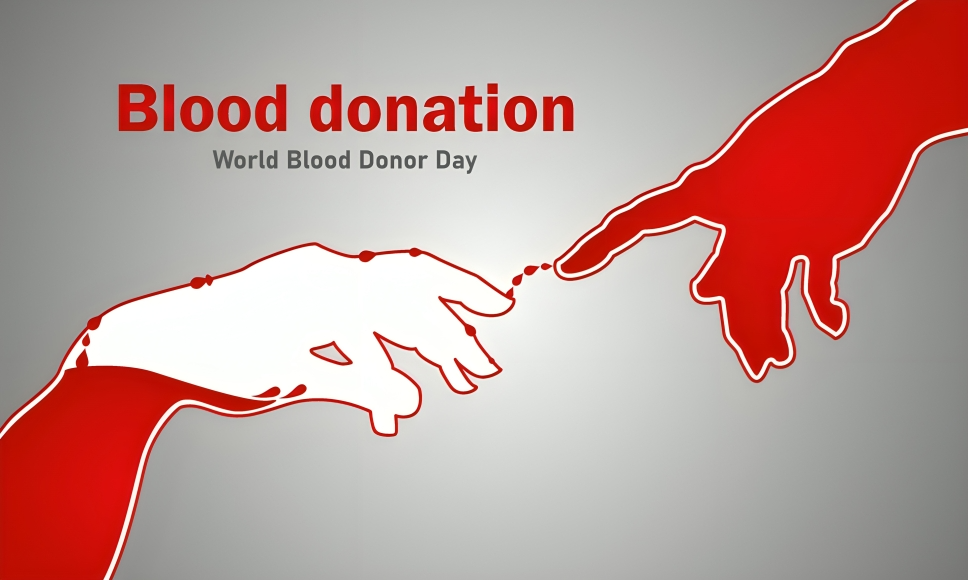Every year on June 14, the world observes World Blood Donor Day. This international event has the objective of increasing awareness regarding the significance of blood donation and the necessity for safe blood and blood products in times of emergencies. The inaugural observance of World Blood Donor Day took place in 2004. Additionally, this day serves as a platform to acknowledge and appreciate the invaluable contribution of blood donors in saving lives and enhancing overall health.
Theme: This year, we commemorate the 20th anniversary of World Blood Donor Day. Consequently, the theme for this year is ‘Celebrating 20 years of giving: expressing gratitude to blood donors!’.
Objective: The goal of this year’s campaign is to honor voluntary blood donors who have contributed to saving millions of lives globally. Additionally, it aims to encourage the practice of regular blood donation among both the youth and the general population.

Know the criteria for blood donation: Blood donation is a straightforward procedure that has the potential to save an individual’s life. Not only does blood donation prove beneficial for the recipient, but it also provides various health advantages to the donor. Donors must meet certain fundamental health requirements in order to ensure the safe donation of blood, as outlined by the WHO guidelines.
- Weigh at least 50 kg (in some countries donors should not weigh less than 45 kg)
- Be between 18 and 65 years of age
- Not have a cold, flu, sore throat or any other infections.
- Have a haemoglobin count that is not less than 12.5 g/dl
- Should have normal blood pressure during the donation process
Donating blood is not possible under the following circumstances:
- You are a pregnant or lactating woman
- You have recently had a tattoo or body piercing in the past 6 months
- You have tested HIV positive
- You have ever injected recreational drugs
- Consumed alcohol 48 hours prior to donation
- Those who have undergone surgery in the previous six months
- People with active tuberculosis
Do’s after donating blood:
- Ensure Proper Hydration: Following blood donation, it is essential to consume an adequate amount of fluids to replace the lost volume. Opt for water, juice, or other non-alcoholic beverages within the next 24-48 hours.
- Rest and Recovery: Taking it easy for the remainder of the day is crucial. Refrain from engaging in strenuous activities or heavy lifting for at least 24 hours to prevent potential dizziness or fainting.
- Maintain a Balanced Diet: Incorporate a nutritious meal into your diet, focusing on foods high in iron and vitamins. Items such as spinach, red meat, beans, and fortified cereals can aid in replenishing iron levels in your bloodstream.
- Keep the Bandage Intact: Keep the bandage on your arm for a few hours post-donation to avoid bleeding or bruising at the site. If bleeding occurs, apply pressure and elevate your arm until it ceases.
- Monitor Your Well-being: Be attentive to any changes in your health following the donation. Symptoms like light-headedness, dizziness, or fatigue may arise. While these typically resolve within hours, persistent symptoms warrant medical attention.
Don’ts after donating blood:
- Refrain from consuming alcoholic beverages for a minimum of 24 hours after donating blood, as alcohol can dehydrate your body and worsen any feelings of lightheadedness.
- Ensure that you have regular meals after donating blood and do not skip any. Skipping meals can result in low blood sugar levels, which increases the risk of dizziness or fainting.
- Avoid smoking for at least a few hours after donating blood. Smoking can cause dizziness, especially if you smoke immediately after the donation.
- Refrain from engaging in intense physical activity or heavy lifting for the next 24 hours. Your body requires time to recover, and excessive exertion can lead to complications.
- If you experience prolonged dizziness, bleeding, or any other unusual symptoms, do not disregard them. Seek advice from your healthcare provider or the blood donation center.

